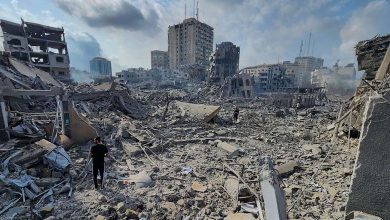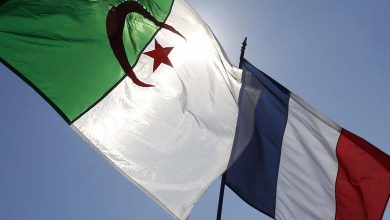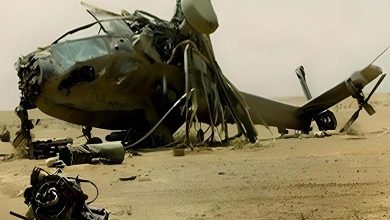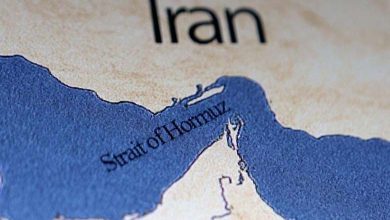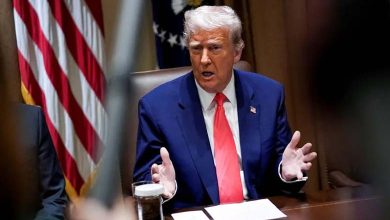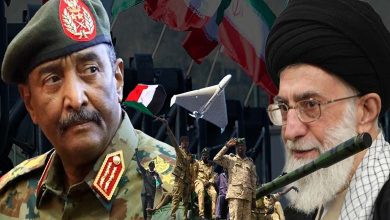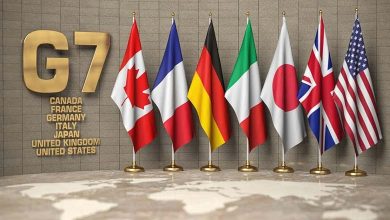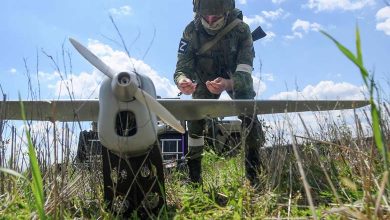The Royal British Institute urges recognition of Sahara’s Moroccan Identity
A British report reminds that the traditional allies of the United Kingdom have expressed their support for the autonomy plan under Moroccan sovereignty, emphasizing that it is the best means to achieve peace, prosperity for the population, and end the fabricated conflict

All indicators suggest that Britain is closer than ever to recognizing the Moroccan identity of Moroccan Sahara, as calls escalate urging the British government to support the proposed autonomy plan under Moroccan sovereignty to resolve the fabricated conflict, considering it the most realistic and serious solution, which explains the quasi-international consensus it enjoys.
The Moroccan newspaper “Al-Sahafa” reported a report published by the Royal British Institute for United Services, based in London, urging the British government to end its hesitation regarding the Moroccan identity of Moroccan Sahara and to expedite the announcement of support for the proposed autonomy plan in the region under Moroccan sovereignty.
The report, authored by Sir Simon Mayall, retired British Army officer and Middle East defense ministry advisor, stated that “the situation in Moroccan Sahara may seem like another frozen conflict in a world witnessing increasing crises,” adding that “it is a type of conflict that resists efforts by the United Nations and other mediators to reach a solution and is fueled by armed groups usually pursuing agendas supported by external parties, leading to the failure of settlement efforts and significant human suffering, contributing to creating an atmosphere of instability characterized by extremism and terrorism.”
He explained that the autonomy proposal presented by Morocco to the United Nations in 2007 is the basis for negotiations and paves the way for shared prosperity across North Africa, emphasizing that “the Moroccan initiative to resolve the fabricated conflict is the only credible plan,” noting that it “is based on a commitment to a promising political and economic future for the people with respect for the rule of law, democratic procedures, and sustainable development.”
He pointed out that Morocco has demonstrated commitment to Moroccan Sahara over the past decades, citing the Southern Provinces Development Program initiated by King Mohammed VI, transforming the region into an attractive destination for foreign investment in various sectors.
The report revealed that “for every pound collected in taxes in Moroccan Sahara, the region receives 7 pounds,” making it one of the most developed regions in the kingdom, explaining the participation of around 66 % of the population in the 2021 general elections, indicating their successful integration.
He continued that “traditional allies of the United Kingdom, including Germany, Spain, the Netherlands, and the United States, have expressed their support for the Moroccan autonomy plan, considering it the best means to achieve peace, prosperity for the population, and end the conflict,” adding that “the majority of Arab countries and many African and Caribbean countries have taken the same stance, including countries that have opened consulates in the southern provinces, while opponents of autonomy have not presented any reliable alternative, and neutrals use this issue as part of broader regional agendas.”
The number of countries that have opened consulates in Moroccan Sahara has reached 29 international ones, distributed between 17 consulates in Laayoune and 12 consulates in Dakhla, with expectations of opening more diplomatic representations in the new year as recognitions of the Moroccan identity of the Sahara continue.
He referred to “the humanitarian crisis in the Tindouf camps on the Algerian border,” describing it as “inhuman” and “dangerous,” adding that “100,000 Sahrawis suffer from miserable conditions, deprived of a future, and unable to effect change,” while the Polisario separatist front, which manages the camps, relies almost entirely on international humanitarian aid.
The leaders of the Polisario live in great luxury and prosperity in Algeria, while the Sahrawis in the Tindouf camps suffer from poverty and deprivation, receiving minimal aid.
The report emphasized that the only solution to the fabricated conflict lies in implementing the Moroccan autonomy plan, pointing out that it “provides prospects for work and prosperity, unlike other alternatives ranging from stagnation to a return to violence, which offer nothing to the Sahrawis and pose a serious threat to security and stability.”
He warned that “this threat jeopardizes the Maghreb region and the Sahel region and ultimately represents a threat to the entire Mediterranean region,” pointing out that “the threat is exacerbated and accelerated by Iranian influence and the malign activities of the Quds Force and Tehran’s proxies, especially Hezbollah,” alerting to “the relationship between Iran and the Lebanese group and the Polisario feeds on this security threat.”
The report highlighted the partnership between Morocco and Britain and their convergence on military, energy, and food security issues, noting that an end to London’s hesitation regarding the recognition of the Moroccan identity of the Sahara would give a strong boost to cooperation between the two countries.


